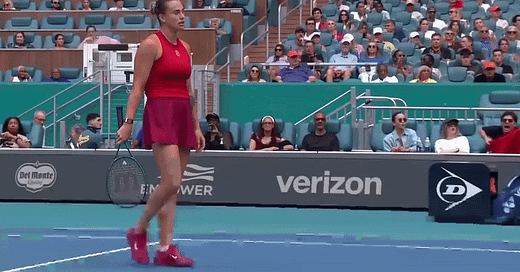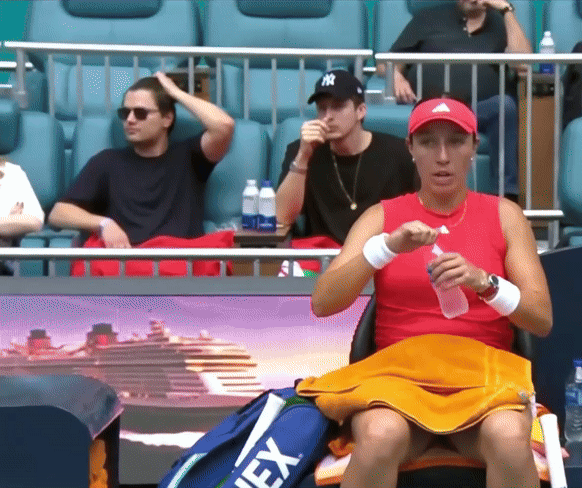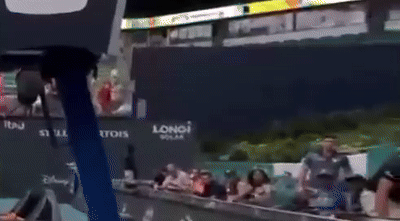Fates of Flags in Florida
At the Miami Open this week, national flags symbolized very different things for Aryna Sabalenka, João Fonseca, and Alexandra Eala.
As I was watching the women’s final of the Miami Open on Saturday afternoon, something that normally would have been innocuous caused me to do a double-take.
After top-ranked Aryna Sabalenka broke back to level the first set at 3-3 against Jessica Pegula—a break that would prove crucial in Sabalenka’s eventual straight-sets victory—a small group of fans in the front row waved her country’s flag in excitement.
Though tennis graphics for the last three years might have convinced some that the three-time major champion hails from neutral Greyrectangleland, these were Belarusian flags from Sabalenka’s home country of Belarus.
The Belarusian flag had been a common tile on the mosaic of tennis for my first decade covering tennis, since Victoria Azarenka and Sabalenka were fixtures atop the women’s tour. But I had not seen one at a tennis tournament in years, since Belarusian cooperation with the Russian invasion of Ukraine had led tennis governing bodies to stop displaying both countries’ flags in March 2022.
That declaration primarily applied to the presentation of flags and country names on scoreboards and other tennis graphics; rules limiting fan behavior have been less commonly discussed apart from the 2023 Australian Open, which banned flags and other pro-Russia symbols (and ultimately devolved into a surreal pro-war rally on the steps of Rod Laver Arena).
The Miami Open’s list of ticket policies made no mention of verboten flags, however, and it wasn’t immediately clear that a rule was being broken. When I went back to the world feed of the match later, I saw that the three flag-waving fans had excitedly first unfurled their Belarusian banners when they noticed they were on camera during the previous changeover, smiling broadly.
But by the next changeover, I could see the trio being approached by a Miami Open tournament official about their flags. The fans followed the man away from their seats, but they were allowed to return; I spotted them back in their seats some time later, without any visible flags.
When I inquired to the tournament about the incident, the Miami Open responded with this statement:
To read the rest of this post, including further discussion of the issue of nationality in tennis as it pertains to breakout stars like Alexandra Eala of the Philippines and João Fonseca of Brazil, please subscribe! Thanks! -Ben
Keep reading with a 7-day free trial
Subscribe to Bounces to keep reading this post and get 7 days of free access to the full post archives.







